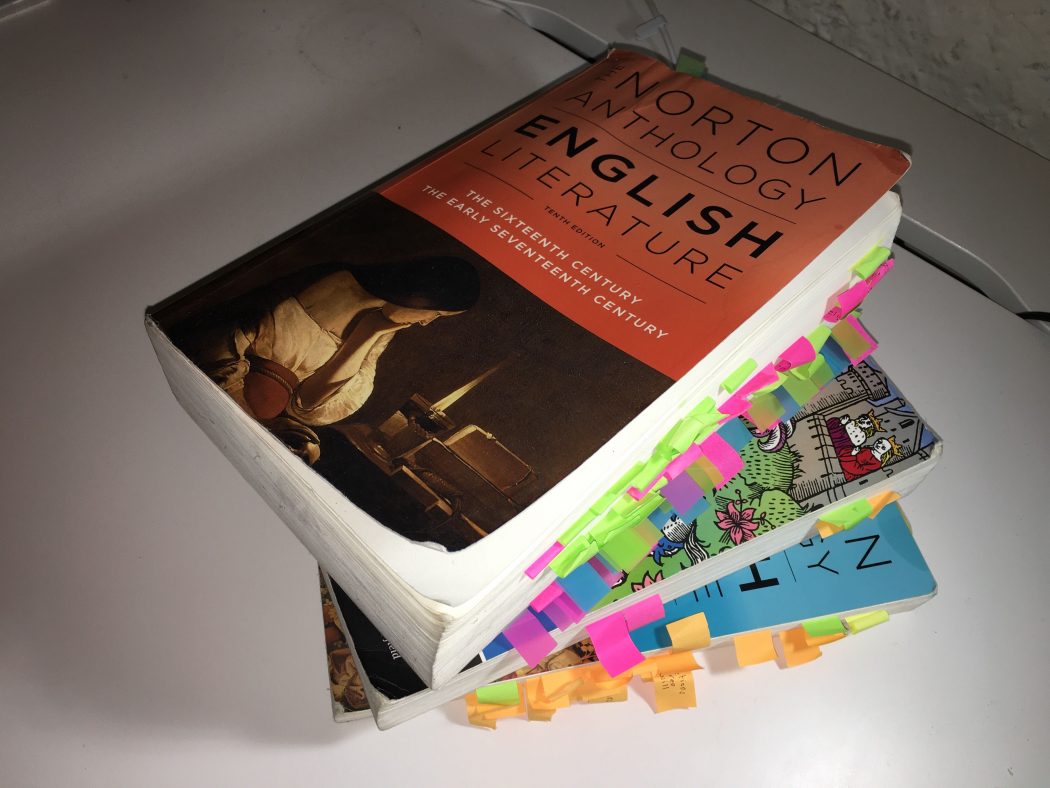When I first entered college this September, I didn’t expect to use SparkNotes, Shmoop, and eNotes at all. Today, these academic shortcuts are not only bookmarked at the top of my browser, but also when I type into my search engine, they fill my server’s autofill. In high school, all I knew was my school system’s vendetta against them. “No Sparknotes!” was bolded at the tops of English teachers’ syllabi, oftentimes in capital letters and with several exclamation marks. I was taught to think that these websites were simply a way for students to cut corners, even cheat. If a teacher found out that a student was consulting character lists on Shmoop before an exam, they would be reprimanded severely.
Yet, upon further reflection after I came to McGill, I begin to realize the value of these websites. Websites like SparkNotes and Shmoop provide insight into the cultural, historical, and linguistic context that is necessary for students to connect with a text. In addition, the simplicity of the language of these resources seeks to debunk the elitist aspect of studying literature.
Literary communities can be elitist, and this culture of snobbishness can make itself fairly apparent. Literature is infamous and has persisted throughout humanity as a way for people to claim a self-important status over others. Even as someone who deeply enjoys reading, I’ve felt this elitism firsthand. Often times, students don’t have opportunities to study more archaic works and therefore tend to stick to modern teen novels because they’re written in digestible prose. However, when even avid readers find classic novels daunting, this can perpetuate a feeling of incapability when thrust into a traditional classroom setting.
It’s clear that imposter syndrome runs strong within the literary community.
I often struggle with feeling like a fraud as an English major who hasn’t had the chance to read many “classics.” I’ve spent the majority of my life being infatuated with literature, whether it be through reveling in weekend trips to second-hand bookstores or feeling an intense amount of pride when receiving a good grade on a school essay. Yet, no matter how much success I experience, feelings of inadequacy burden my mind. It’s clear that imposter syndrome runs strong within the literary community. I’m scared of being wrong in my interpretations and choose not to speak in class discussions as a result.
Literature isn’t meant to be overwhelmingly difficult.
Literary resources such as SparkNotes or Shmoop help quell this fear of inadequacy. Describing Hamlet as “moody and dramatic” or Romeo as “an emo teenager” may seem juvenile at first, but it can help make the more lofty concepts of literature become palatable to the average reader. Literature isn’t meant to be overwhelmingly difficult. As Roman poet Horace describes, it is meant to be dulce et utile, embracing a balance between delight and practicality.
SparkNotes, Shmmop, and eNotes do the exact work needed to bring the dulce et utile factor into studying literature. They increase a student’s comfort with the content and allow for a positive experience while reading. SparkNotes features a series called “No Fear Shakespeare” that translates William Shakespeare’s plays into contemporary English. This resource does exactly what the name suggests; it strips away the intimidation of 16th century literature and accommodates a student’s personal connection with the presented themes.
Indeed, as an English student, delving into works translated into Old English and Middle English for my core classes can be intimidating.
I believe that these literary resources could and should be implemented in academic settings. Indeed, as an English student, delving into works in their original Old English and Middle English for my core classes can be intimidating. The linguistic differences often cause the content of the stories to be lost while trying to comprehend the stories in this foreign form. Sparknotes helps clarify these meanings by providing us with information on the rhyme scheme, meter, and other genre indicators.
Furthermore, it’s important to remember that literature is not created in a vacuum; understanding historical and cultural context is also necessary when dissecting these texts. Having some familiarity with the dominant language, religion, and political system of the time is crucial to understanding the stories’ content and deeper messages. For example, studying the English Reformation is essential to grasp Sir Phillip Sidney’s poetry, just as understanding the effects of a growing middle class is necessary to understand Edmund Spenser’s Faerie Queene. Sources like Sparknotes usually contain historical context pages that lay bare the key information necessary to digesting these heavy texts.
In a way, I feel immense gratitude resources like SparkNotes or Shmoop because they simplify literature, which in turn allow others to see literature the way I do.
Ever since I was young, my love of literature has set me apart from my peers. In school, I would stay up at night devouring the assigned novels and annotating furiously ahead of English classes. Afterwards, I would arrive at class the next morning and lie to my peers about my academic passions in an effort to fit in: “Oh yeah, I didn’t read it either,” I’d say, feigning nonchalance.
I curated a pseudo-carefree persona for myself that was sometimes exhausting to keep up with. Resources like Sparknotes help deflate the intimidating, elitist literary culture so everyone can see books with as much wonder and joy as I see them.
To me, literature is special because it represents a lifetime of experiences and emotions distilled into a few written words. Life is overwhelming and confusing, overly emotional and often melodramatic, yet made easier when parceled out and taken gradually. Literature builds us up to handle the messy parts of life, and it can even make us infatuated with life itself. I believe that literature encompasses an ungraspable beauty, and sources like SparkNotes, Shmoop, and eNotes make the beauty as it should be: accessible to everyone.


